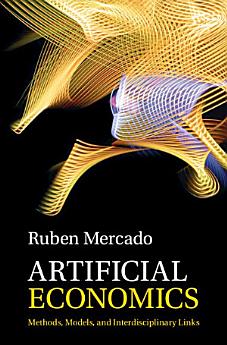Artificial Economics: Methods, Models, and Interdisciplinary Links
ਇਸ ਈ-ਕਿਤਾਬ ਬਾਰੇ
ਲੇਖਕ ਬਾਰੇ
Ruben Mercado is a Professor at the Latin American Faculty of Social Sciences and a member of the editorial board for the journal Computational Economics. He holds a Ph.D. in economics from The University of Texas at Austin. His research specializes in computational economics, economic modeling and economic development. In the past, he has taught at the University of Texas at Austin, Bryn Mawr College, the Technological and Higher Studies Institute of Monterrey, and the Universities of Buenos Aires, Quilmes and San Martín. He has also been a Senior Economist at the United Nations Development Program, a Chair for the Study of Western Hemispheric Trade at the Lozano Long Institute of Latin American Studies, and a consultant for the World Bank and the Inter-American Development Bank. He is a co-author of the pioneering textbook Computational Economics (2006).




